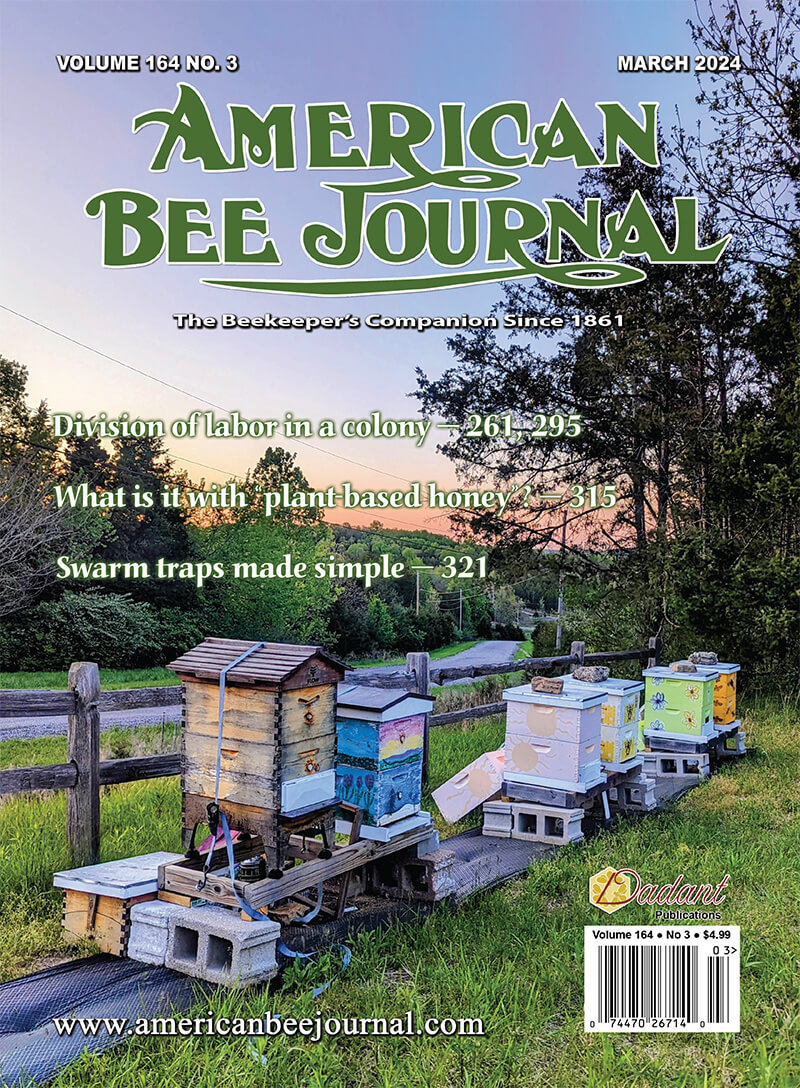One of the most significant tools in apiculture today is instrumental insemination. Each year in early August bee breeders and researchers from around the country and abroad make their way to Purdue University’s honey bee laboratory, where they have the opportunity to learn how to instrumentally inseminate honey bee queens. Krispn Given, an apiculture specialist and bee breeder, teaches the short course “Instrumental Insemination and the Architecture of a Successful Breeding Program”.
Krispn has been engaged in honey bee breeding for the last fourteen years, joining the university in 2003. He works with Dr. Greg Hunt, a behavioral geneticist. Krispn manages the breeding program and bee lab’s extension/research activities. Given learned how to successfully inseminate queen bees from Greg, who had learned the technique from Dr. Harry Laidlaw, the father of honey bee genetics.
The use of instrumental insemination (I.I.) has recently grown in popularity; it is similar to the interest we experienced a decade ago with queen rearing. This year we had 9 students in the I.I. class and conducted one custom class with Dr. Meghan Milbrath of Michigan State University. Bee breeding is like walking a tightrope: when selecting for different desired traits from the honey bee (Apis mellifera) you constantly need to select; once you stop selecting you may fall.
One of the hardest things for the student to grasp is collecting drone sperm (germplasm) along with mastering sterile technique. Practitioners need to be able to identify problems early, like why did my inseminated queens die? Why are my drones yielding no sperm? Typically learning how to set up the insemination instruments is a difficult and time-consuming process for some beginning students, especially the hydraulic system.
For a course like this to be successful you need great people working with you behind the scenes. Matt Evans, a fantastic IN beekeeper has been Krispn’s assistant for the last three years. He makes sure it’s a success, collecting drones for the students and helping out with all aspects involved in the instrumental insemination training process. Each of the 9 students successfully inseminated a queen and went home believing they could do it. That is what it is all about—empowering the student with knowledge. The interest in I.I. has grown since its origins in 1921, when Dr. Lloyd Watson first demonstrated it successfully with the hand-help forceps technique.
You may ask yourself, why is there so much interest in bee breeding now? Indeed, many beekeepers and researchers are experiencing unprecedented colony mortality here in the U.S. and Europe with >30% attributed to the obligate parasite Varroa destructor, a virus-vector. All honey bee ecotypes possess useful behavioral traits like general hygiene and varroa sensitive hygiene (VSH) to combat the voracious mites. Here at Purdue we have developed bees that groom themselves free of mites and bite them resulting in death, another root-behavioral trait. Colonies that have a higher proportion of mites on their 24hr sticky boards tend to be the best mite-biters, in addition we observe fewer mites on the adult population! We are currently conducting a CARE grant to improve the mite-biter stock.
We annually have breeders from seven states, mostly Midwesterners, who visit our bee lab and participate in the Heartland Honey Bee Breeders Cooperative (HHBBC). This group helps disseminate germplasm via descendants of “locally adapted” stocks that have demonstrated good winter survival and grow fewer mites, etc. We then perform crosses with our pure mite-biter stock (high % chewed mites x high % chewed mites). We call this event our insemination fest, which is open by invitation only. This year we inseminated about 122 breeder queens for these breeders. The idea is to get a diverse group of bees that share the same traits. The HHBBC is one of several breeding projects that have emerged recently from students who have participated in the I.I. class or showed interest in the breeding program at Purdue. One of Krispn’s students, Dorthey Morgan of KY recently started a breeding program “The Kentucky Bee Breeders Association”. Because of high demand, Purdue’s 2018 I.I. class is already completely booked.You can go to the Purdue Beehive website for more information at:


